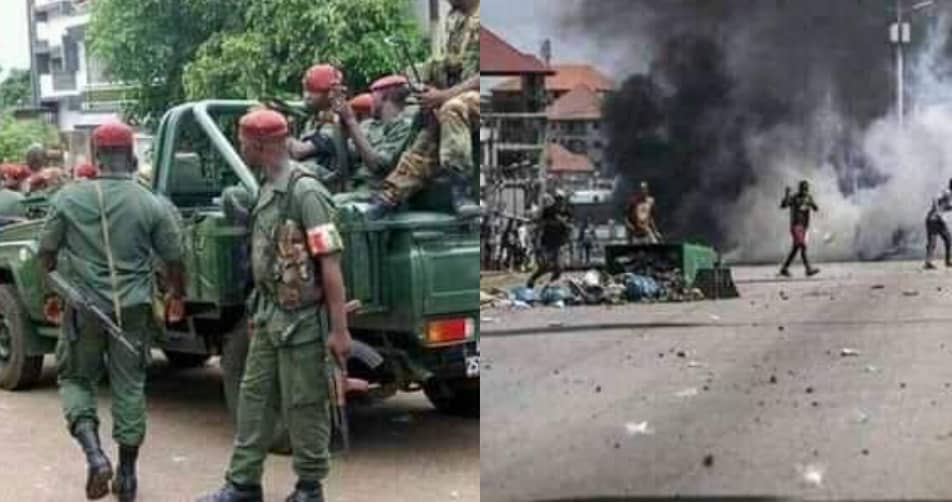A quarter-century has passed since the day Freetown, Sierra Leone’s vibrant capital, witnessed one of the darkest chapters in its history. On January 6, 1999, the rebel group Revolutionary United Front (RUF) unleashed a reign of terror on the city, leaving over 7,000 dead and etching a gruesome scar on the nation’s collective memory.
The RUF’s rampage was no isolated incident. It was a horrifying echo of the atrocities that had plagued Sierra Leone for years during the brutal 11-year civil war (1991-2002). While Freetown’s residents bore the brunt of the January 6th attack, countless villages and towns across the country had already endured similar waves of violence, their stories often fading into distant whispers with time.
But today, Freetown remembers. As survivors mark the anniversary, a poignant question hangs in the air: how can a nation heal from such profound trauma? While life has moved on for many, the scars of the past remain. The Truth and Reconciliation Commission (TRC) documented the war’s horrors, yet a sense of true national reflection and learning often feels elusive.
Many fear that Sierra Leone’s tendency to “move on quickly” threatens to cast the civil war and its victims into the shadows of history. They argue that forgetting becomes synonymous with failing to learn, ensuring the cycle of violence can repeat itself.
Today’s anniversary serves as a powerful reminder of the need for sustained remembrance. The fallen deserve to be honored, their stories preserved. State-led initiatives – beyond mere social media mentions and prayers – are crucial for collective healing and ensuring future generations understand the depths of the country’s past.
Freetown’s streets may bear the physical markings of reconstruction, but the emotional scars run deeper. As Sierra Leone looks to the future, it must not forget the January 6th rampage and the countless other atrocities that tore the nation apart. Only by remembering can the country truly reconcile with its past and build a future free from the specters of its violent past.


 7 Comments
7 Comments










May All those who lost their lives on that continue to rest in perfect peace and may peace continue to reign in sierra Leone forever Amen and Amen
This is for those didn’t witness January 6
People will never remember this day instead they will choose to embrace other people’s histories.
Our schools and leaders need to review the teaching skills especially history we know everything about other countries but our academics is failing us and the country
Some wise ones only choose to know the truth at adulthood because our curriculum in schools did not make provision for our past and young generations to know our history. Like wise other countries they teaches their history in schools and mentain their culture. Most people do not know what happened in the past 10 years brutal war and this day(January 6)
The big elephant in the room is whether it will happen again- just look at its antecedents.
RIP to all those who lost the lives on that day
May the innocent ones souls rest in perfect peace, and those guilty ones that killed, rest in hellfire forever and ever. Amen.
Unfortunately, we Sierra Leoneans have not learnt anything from our past and keep repeating the same mistakes. We could take Rwanda as an example and become a country to be envied for good governance, peace, success and prosperity. But no, O ya, greed and selfishness still runs in the veins of corrupt governments since 1961. 1997 and 1999 came and went, and look at where we are today. Our people cannot even boast of having basic amenities such as electricity and running water, let alone basic accommodation for the populace. Our past two governments have failed us. Buildings are not sine qua non to development. Our education system has gone down the drain, our health system is in shambles. We cannot provide health services to our people, who keep dying from preventable conditions.
What then can we celebrate when we look back at 1999. Nothing!
If we are not careful, 1999 will repeat itself. Or we will need some Paul Kagame or Jerry Rawlings to fix our country. We pray for God’s mercy on innocent victims that we the general population in Freetown in particular are. It seems like better things are happening in the provinces, but it is the work of individuals and not the government. The capital Freetown is the epitome of disorganization.
We do not want the government to do everything for us, but we are only pleading that it responds to the cries of its people for basis needs.
I witnessed 1997 and 1999 and can say I am one of the lucky ones to have survived. But it left scars and trauma. Sometimes I wonder what we have done to God to deserve such heartless and clueless people we call our rulers.